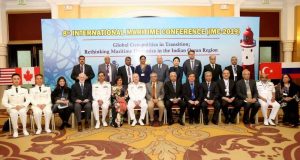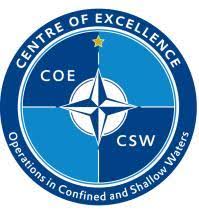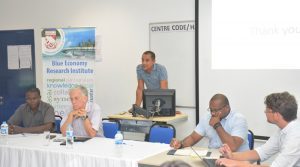 On the 6th of December, I contributed to a symposium on illegal fishery in Seychelles waters and the wider Western Indian Ocean region. Titled “Stopping Illegal Fishing: Protecting the ‘Blue Gold’ of Seychelles” the objective of the event was to raise awareness for the problem and to offer a platform for the policy dialogue on how to improve a national and regional multi-agency response. Given Seychelles’ status as a regional and global leader in ocean governance, it is important that the country continues to be pro-active in this important security and development matter.
On the 6th of December, I contributed to a symposium on illegal fishery in Seychelles waters and the wider Western Indian Ocean region. Titled “Stopping Illegal Fishing: Protecting the ‘Blue Gold’ of Seychelles” the objective of the event was to raise awareness for the problem and to offer a platform for the policy dialogue on how to improve a national and regional multi-agency response. Given Seychelles’ status as a regional and global leader in ocean governance, it is important that the country continues to be pro-active in this important security and development matter.
The event was co-organised by the Blue Economy Research Institute, the James Mancham Center for Peace and Security, both from the University of Seychelles and my project SafeSeas. Speakers at the event represent the Seychelles Blue Economy department, the Seychelles Fishing Authority, Seychelles Fishing Boat Owner Association, the Indian Ocean Tuna Commission as well Fish-I Africa. I offered some introductory remarks and chaired one of the two panels.
In my introductory remarks, I stressed that contemporary ocean governance is best appreciated through four conceptual lenses: 1) maritime security, 2) blue economy, 3( ocean health, and 4) blue justice. Each of these agendas are often seen as seperate. Yet, the problem of illegal fishery documents well how all of these hang together. Fisheries, is a major resource in the blue economy, in order to generate revenue from it, it needs to be sustainably managed, and fish require healthy oceans. Sustainable fisheries, raises major distributive justice questions, namely who is to fish how much where and when? Do the revenues go to international cooperations, to the state, or to the small-scale, artisanal professional fishermen or the amateur fishermen. Finally, fisheries is also a security problem. We have learned that organised criminals combine their illicit activities, such as smuggling with illegal fisheries, and we have learned from Somalia that illegal fisheries can create grievances and provide the justifications for engaging in crime.



